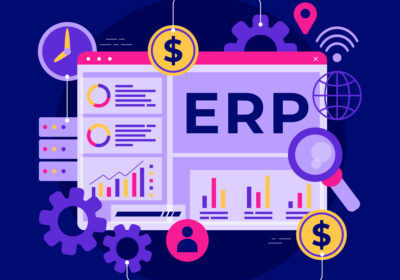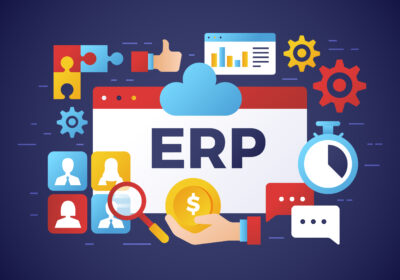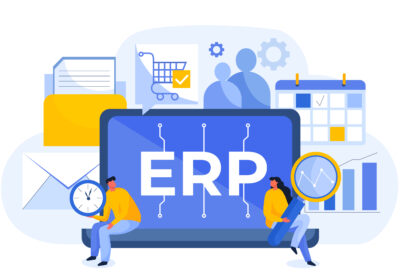In the world of business, efficiency is key. One area where efficiency can have a significant impact is in the purchasing process. An Enterprise Resource Planning (ERP) system can greatly improve the efficiency of this process. This blog post will delve into how an ERP can be used to improve your purchasing processes.
Understanding ERP and its Role in Purchasing
ERP is a type of software that integrates all facets of an operation, including product planning, development, manufacturing, sales, and marketing. In the context of purchasing, ERP systems can streamline the process by automating tasks such as creating tracking numbers, filing orders, checking inventory, and coordinating with suppliers.
The purchasing process is a critical part of any business. It involves identifying what products are needed, finding suppliers who can provide these products, negotiating prices, and finally, purchasing the products. This process can be complex and time-consuming, especially for larger businesses that have to manage multiple suppliers and a large number of products.
By using an ERP system, businesses can automate many of the tasks involved in the purchasing process. This not only saves time but also reduces the likelihood of errors. For example, the ERP system can automatically generate tracking numbers for each order, eliminating the need for manual input. It can also automatically check the inventory to see if the products are in stock, and if not, it can send an alert to the purchasing department.
The Benefits of Using an ERP for Purchasing
There are several benefits to using an ERP system for purchasing. One of the main benefits is improved efficiency. By automating tasks, the purchasing process becomes faster and more streamlined. This can save businesses a significant amount of time and resources.
Another benefit is improved accuracy. With an ERP system, there is less room for error as the system automatically checks for issues such as out-of-stock items. This can prevent problems down the line, such as delays in production due to missing products.
ERP systems also provide better visibility into the purchasing process. They allow businesses to track each order from start to finish, providing valuable insights into the efficiency of the process. This can help businesses identify areas where improvements can be made.
Finally, ERP systems can also help businesses save money. By streamlining the purchasing process and reducing errors, businesses can avoid unnecessary costs. Additionally, ERP systems can help businesses negotiate better prices with suppliers by providing them with accurate and up-to-date information about their purchasing history.
The Role of ERP in Purchasing
Enterprise Resource Planning (ERP) systems are comprehensive software solutions designed to integrate and manage all aspects of a business’s operations. In the context of purchasing, ERP systems play a crucial role in streamlining and automating various tasks, thereby enhancing efficiency and accuracy.
ERP systems can automate tasks such as creating tracking numbers, filing orders, checking inventory levels, and coordinating with suppliers. By doing so, they eliminate the need for manual input, thereby reducing the likelihood of errors and saving valuable time.
Moreover, ERP systems provide real-time visibility into inventory levels. They continuously manage your inventory in the background, letting you know what stock you have on hand and what needs to be ordered to complete a job. This real-time data can significantly improve decision-making in the purchasing process.
The Benefits of Using an ERP for Purchasing
There are several benefits to using an ERP system for purchasing:
- Improved Efficiency: ERP systems can automate many tasks involved in the purchasing process, making it faster and more streamlined. This can save businesses a significant amount of time and resources.
- Increased Accuracy: ERP systems reduce the likelihood of errors by automating tasks and providing real-time data. This leads to more accurate purchasing decisions and better inventory management.
- Better Supplier Management: ERP systems can help businesses manage their relationships with suppliers more effectively. They can store and organise all supplier information, making it easier to submit requests and orders. They can also streamline communications with suppliers, enhancing relationships and making the procurement process smoother.
- Cost Savings: By streamlining the purchasing process and reducing errors, ERP systems can help businesses avoid unnecessary costs. They can also increase the negotiating power of the purchasing department by aggregating purchase orders, giving businesses more power to negotiate with vendors and ultimately save money.
The Role of ERP in Purchasing
Enterprise Resource Planning (ERP) systems are comprehensive software solutions designed to integrate and manage all aspects of a business’s operations. In the context of purchasing, ERP systems play a crucial role in streamlining and automating various tasks, thereby enhancing efficiency and accuracy.
ERP systems can automate tasks such as creating tracking numbers, filing orders, checking inventory levels, and coordinating with suppliers. By doing so, they eliminate the need for manual input, thereby reducing the likelihood of errors and saving valuable time.
Moreover, ERP systems provide real-time visibility into inventory levels. They continuously manage your inventory in the background, letting you know what stock you have on hand, and what needs to be ordered to complete a job. This real-time data can significantly improve decision-making in the purchasing process.
The Benefits of Using an ERP for Purchasing
There are several benefits to using an ERP system for purchasing:
- Improved Efficiency: ERP systems can automate many tasks involved in the purchasing process, making it faster and more streamlined. This can save businesses a significant amount of time and resources.
- Increased Accuracy: ERP systems reduce the likelihood of errors by automating tasks and providing real-time data. This leads to more accurate purchasing decisions and better inventory management.
- Better Supplier Management: ERP systems can help businesses manage their relationships with suppliers more effectively. They can store and organise all supplier information, making it easier to submit requests and orders. They can also streamline communications with suppliers, enhancing relationships and making the procurement process smoother.
- Cost Savings: By streamlining the purchasing process and reducing errors, ERP systems can help businesses avoid unnecessary costs. They can also increase the negotiating power of the purchasing department by aggregating POs, giving businesses more power to negotiate with vendors, and ultimately saving money.
How ERP Enhances Purchasing Processes
ERP systems can significantly enhance purchasing processes in several ways. Firstly, they automate routine tasks such as creating tracking numbers, filing orders, checking inventory, and coordinating with suppliers. This automation not only saves time but also reduces the likelihood of errors, leading to more accurate and efficient purchasing processes.
Secondly, ERP systems provide real-time visibility into inventory levels. They continuously manage your inventory in the background, letting you know what stock you have on hand, and what needs to be ordered to complete a job. This real-time data can significantly improve decision-making in the purchasing process.
Thirdly, ERP systems can help businesses manage their relationships with suppliers more effectively. They can store and organise all supplier information, making it easier to submit requests and orders. They can also streamline communications with suppliers, enhancing relationships and making the procurement process smoother.
Finally, ERP systems can help businesses save money. By streamlining the purchasing process and reducing errors, businesses can avoid unnecessary costs. They can also increase the negotiating power of the purchasing department by aggregating purchase orders, giving businesses more power to negotiate with vendors, and ultimately saving money.
ERP Implementation in the UAE
The software development landscape in the UAE is ripe for ERP implementation. With a robust economy and a strategic focus on digital transformation, businesses in the UAE are increasingly leveraging ERP solutions to drive efficiency. Software development companies in the UAE are at the forefront of this trend, providing innovative ERP solutions tailored to the unique needs of each business.
These companies understand the importance of each phase in the ERP implementation plan and work closely with businesses to ensure a successful implementation. They offer a range of ERP solutions, both Cloud and On-premise, tailored to meet the unique needs of businesses in the UAE.
Conclusion
In conclusion, an ERP system can significantly improve your purchasing processes by automating routine tasks, providing real-time inventory data, enhancing supplier management, and helping you save money. If you’re looking for a software development company in the UAE that can help you implement an ERP system, there are many options available. These companies can provide you with ERP solutions that can drive efficiency in your business.





